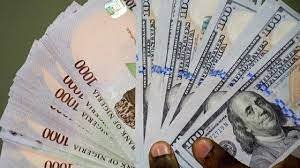
Industries across the nation are grappling with immense challenges as the Nigerian naira continues its sharp decline against the U.S. dollar. The unofficial exchange rate in Lagos and Abuja recently reached between N1,150 and N1,155 per dollar. This alarming trend is causing significant distress in the private sector, particularly for manufacturers and business owners, who face escalating import costs, soaring inflation, shrinking profit margins, and limited access to foreign markets.
The Director-General of the Nigeria Employers’ Consultative Association (NECA), Adewale-Smatt Oyerinde, emphasized that the naira's depreciation negatively impacts the real income of Nigerians and private sector businesses. Oyerinde urged the government to intervene and maintain exchange rate stability to avert a currency collapse, suggesting a balanced approach that combines control and floating exchange rate management.
As a result of the naira's continuous slide, many companies are downsizing, and some have been compelled to source foreign exchange from the black market. Local manufacturers are struggling to compete internationally under these conditions, with some contemplating relocation to neighboring countries like Ghana.
Stakeholders, including the President of the Nigerian Association of Chambers of Commerce, Industry, Mines, and Agriculture (NACCIMA), Dele Oye, have called on the government to take comprehensive steps to address these economic challenges and promote the development of the industrial sector.
Entrepreneurs have also voiced their concerns, as the deteriorating exchange rate makes it increasingly difficult for them to sustain their businesses. The implications extend to higher product prices and reduced affordability for consumers. Various sectors, including the technology industry, have witnessed a direct impact, causing prices of mobile phones and computer systems to soar. This economic turbulence underscores the need for strategic interventions and reforms to stabilize the currency and stimulate economic growth.
Former Finance Minister Olusegun Aganga asserted that Nigeria's reliance on imports, rather than fostering local production and exports, contributes to the naira's ongoing weakness. He urged the government to prioritize and invest in the strategic industrial sector, citing the potential for significant returns and economic development.
Meanwhile, Bureau De Change Operators, including the President of the Association of Bureau De Change Operators of Nigeria (ABCON), Aminu Gwadabe, have called for increased participation in the retail segment of the forex exchange market to address liquidity concerns.
This complex economic landscape necessitates a multifaceted approach to mitigate the current challenges and stabilize the nation's financial system. As the situation evolves, it will be essential to explore various measures and strategies to support economic resilience and ensure a prosperous future.
Source: Daily Trust



![Today's Naira Rate [04-05-2024]:Naira Holds Steady at 1,380 Against Dollar Amid Currency Market Turmoil](/data/attachments/203/203601-8457c57119a478bc5717b11aa4a694ef.jpg)
